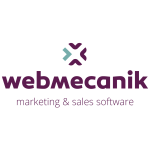Out with the old, in with the new. Since autumn 2020 corporate users have been able to switch to Google Analytics 4 (GA4), the new version of the world’s most used web analytics service. Google has announced that no new data will be gathered in the old Google Analytics iteration, known as Universal Analytics (UA or GA3), from 1 July 2023.
Time to take it to the next level! But what’s new actually? And what are the pros and cons? No need to search Google to get an answer to the four most common questions. We have them here for you.
GA4: What’s going on?
Heavy Google Analytics users have no doubt already seen the notification in their dashboard: Google is introducing a new version, named Google Analytics 4. The rollout started in the autumn of 2020 and last month Google said it was pulling the plug on Universal Analytics on 1 July 2023.
That means that from that date Universal Analytics properties will not process new hits. However, data gathered before the cut-off date will remain available for six months.
That’s a big change given there’s been no major update for a decade. But it’s for the better, as UA is showing its age and no longer meets all requirements and needs.
So what’s new in GA4??
Google Analytics 4 is more than just a new version. It’s a completely new way of measuring online behaviour.
Bye bye sessions, hello events!
Google Analytics 4 ditches the old hit-based data model on the session level, embracing events instead. The new event-driven data model is not only more flexible, it also gives a more even-handed, rounded view of website visitors. A number of events – including scrolls, onsite searches, page views and outbound clicks – are measured automatically, which is a big leap forward.
New interface, new report layout
The interface has been redesigned too. Some statistics have been dropped and the number of standard reports has been slimmed down to around thirty. In this case, less is more: the new reports provide better insight into the customer journey.
Cookieless tracking powered by machine learning
Google Analytics 4 also provides a solution to third-party cookie blocking. GA4 harnesses machine learning to predict how a user will behave and who will log a specific conversion event, a valuable addition to the collected data.

What are the pros of GA4? And the cons?
The advantages of Google Analytics 4:
- Predicts behaviour and supplements missing data with machine learning
- Free access to BigQuery: raw GA4 data
- Cookieless tracking and data deletion requests
- Multi-platform access based on a user ID
- Automatic tracking of a number of events
- More privacy and anonymization options
- Advanced reports available to all
- Target groups easy to set up and create
- No data limits
- More accurate engagement metrics
The disadvantages of Google Analytics 4:
- No historical data migration option from Google Analytics
- New metrics demand a new mindset
- Requirement to reconfigure conversion tracking
- New data reports and analyses
- You cannot yet create views like in UA
These cons are relative and are more than offset by the pros.
GA4: What’s my next step?
Google Analytics 4 has been available since 2020, but lots of corporate customers are still running its predecessor Universal Analytics. That said, making the switch to GA4 is recommended.
We are proactively creating a Google Analytics 4 property for our SEO clients and websites. That means we’re holding off on converting the Universal Analytics property. Rather we’re using it alongside the new version. As a result, Google Analytics 4 can start gathering historical data, so we would not have to start from scratch with an empty dataset when we do the switch.
We advise you to do the same. That will give you the time you need to get used to the new interface and metrics, so you can trade in Universal Analytics for Google Analytics 4 with peace of mind in 2023.
Let’s Go 4 It!
Need some help with Google Analytics 4? We’re here for you. Contact us now.













